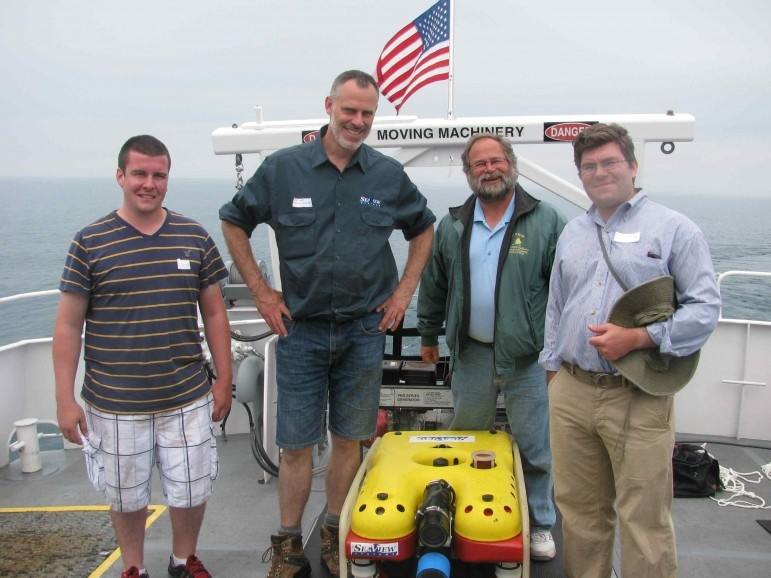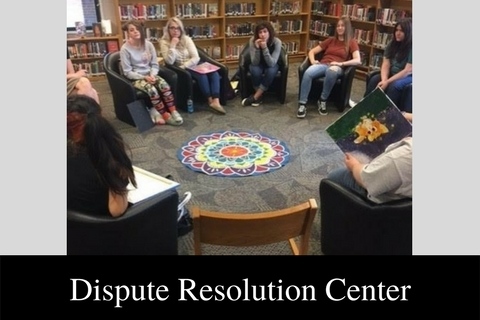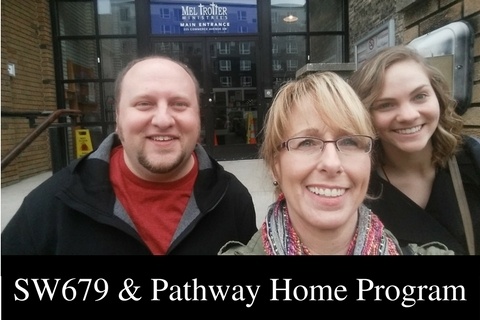
Dr. Mark Gleason prepares for a shipwreck dive with one of the ROVs he operates
ROVs and Community Service
Community service can take many forms, from serving food at a local shelter to teaching students and other young people how to drive underwater robots referred to as remotely operated vehicles (ROV), designed to explore shipwrecks. The latter is tied to a STEM-related series taught by Mark Gleason, an Assistant Professor of Hospitality and Tourism Management. Programs can last from a couple of hours to several days, and may be geared towards any age, though school groups are certainly popular. A multi-day class gave kids as young as five a chance to pilot these machines—and to teach their parents and teachers how to do so at the end of the week.
Most recently, the Grand Rapids Mini Makers Faire, hosted by the Public Museum downtown, brought together innovators from all fields of science and many beyond. Described as “part science fair, part country fair, and part something entirely new”, it featured several robotic experts, including Dr. Gleason. Participants in his presentation were led through building their own model underwater robots and piloting them in a water tank.
Dr. Gleason has been involved with a variety of robotics efforts, exploring waters across the county to examine all sorts of shipwrecks, as well as ecosystems and the creatures that live in them. In addition to exploring dozens of Great Lakes shipwrecks and documenting fish habitats, he has filmed moose underwater at Ilse Royale and manatee in the waters of Florida. Professionally he has worked in the oil/gas fields of the Middle East where he operated underwater robots or ROVs to over two thousand feet underwater. While robots aren’t the first thing that comes to mind when thinking of the CCPS, they can show that the importance of community service can be shared across a wide variety of fields and is not limited to an individual’s set job title.



